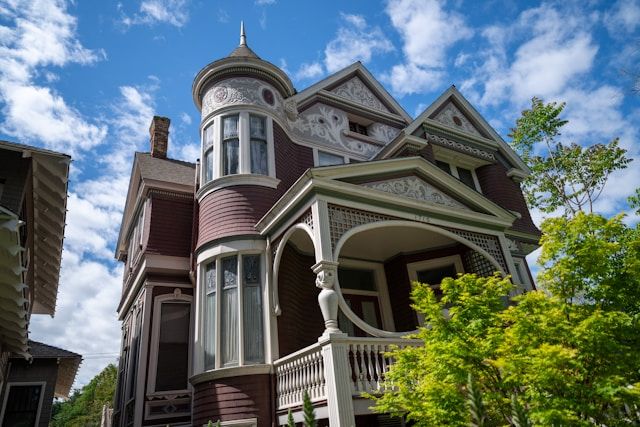Back
The Complete Kentucky Airbnb Host Lodging Tax Guide: Airbnb Kentucky Occupancy Tax Breakdown

Written by:
Jeremy Werden
April 25, 2025

⚡️
Reveal any property's Airbnb and Long-Term rental profitability
Buy this property and list it on Airbnb.
As a short-term rental host in Kentucky, navigating the complex world of lodging and occupancy taxes can feel overwhelming. Whether you’re just starting your Airbnb journey or looking to expand your portfolio, understanding your tax obligations is crucial to running a compliant and successful vacation rental business. Let’s break down everything you need to know about Kentucky’s lodging and occupancy taxes in 2025.
State-wide Lodging and Occupancy Taxes in Kentucky
There are two primary state-level taxes that apply to all short-term rental accommodations in Kentucky. The state imposes a 6% sales tax on the gross receipts from short-term accommodations, including stays in hotels, motels, inns, and short-term rentals like those offered through Airbnb and VRBO. This tax applies to stays of less than 30 consecutive days.
In addition to the sales tax, Kentucky levies a 1% transient room tax on the rent charged for accommodations provided to transients. This tax also applies to stays of less than 30 consecutive days.
The state transient room tax also applies to any occupancy of suites, rooms, cabins, lodgings, campsites, or other accommodations that are regularly furnished to transients for consideration. This tax also includes stays at campgrounds and RV parks.
Does Airbnb or VRBO Collect and Remit Taxes in Kentucky?
The good news for hosts is that both Airbnb and VRBO are collecting and remitting the 1% state-wide transient room tax and the 6% Kentucky state sales tax for most localities within Kentucky.
Since January 1, 2023, these online platforms are also required to report and pay local transient room taxes based upon total charges for rentals, including service fees. However, this doesn’t apply to all localities, so you’ll need to check your specific location requirements.
If you’re doing business exclusively through Airbnb or VRBO, you may not need to maintain a state Transient Room Tax account, but you should verify this with your local tax authority.
City and County-Specific Local Tax Requirements
Some local governments in Kentucky also impose specific taxes to fund their community services and infrastructure. These taxes vary by jurisdiction and are crucial for supporting local tourism, education, and public projects. Here are the different taxes per municipality in Kentucky.
Lexington-Fayette County (Consolidated City-County)
Lexington’s 4% Transient Room Tax, totaling 11% with state tax, funds the Lexington Center Corporation, aiding in the development and promotion of tourism and convention activities.
Louisville City
Louisville imposes an 8.5% Transient Room Tax, contributing to a total of 15.5% with state tax. The revenue supports tourism initiatives and the expansion of the Kentucky International Convention Center.
Bowling Green City
Bowling Green levies a 3% Transient Room Tax, culminating in a 10% total rate. Proceeds are allocated to promote tourism and support the operation of the local convention center.
Covington City
Covington applies a 3% Transient Room Tax, leading to a 10% combined rate. Funds are directed to meetNKY for tourism promotion and economic development in Northern Kentucky.
Paducah City
Paducah’s 3% Transient Room Tax, totaling 10%, finances the McCracken Sports Tourism Commission, supporting tourism-related activities and facilities in the county.
Owensboro City
Owensboro charges a 3% Transient Room Tax, amounting to a 10% total rate. The revenue services bonds issued for projects like the indoor sports facility, enhancing local tourism infrastructure.
Frankfort City
Frankfort imposes a 3% Transient Room Tax, contributing to a 10% total rate. The funds support the city’s tourist and convention commission, promoting local tourism and related events.
Ashland City
Ashland’s 3% Transient Room Tax, totaling 10%, funds the city’s tourist and convention commission, aiding in the promotion of tourism and convention activities within the city.
Example Calculation for a Property in Louisville City:
A 3-night stay at $150 per night.
- Total nightly Rate: $150 x 3 = $450
- Cleaning Fee: $70
- Total Listing Price for a 3-night stay: ($150 × 3) + $70 = $520
- Kentucky State Sales Tax (6%): $520 x 0.06 = $31.2
- Kentucky State Transient Room Tax (1%): $520 x 0.01 = $5.2
- Louisville Local Transient Room Tax (8.5%): $520 x 0.085 = $44.2
- Total Tax Collected (15.5%): $80.6
- Total Guest Payment: $520 + $80.6 = $600.6
Wrapping Things Up
Understanding and complying with Kentucky lodging tax requirements is an essential process that all short-term rental operators must go through. While platforms like Airbnb collect some taxes automatically, hosts remain responsible for ensuring all applicable taxes are properly handled. We highly recommend coordinating with your local authorities for more clarity.
These tax ranges are meant for general information purposes. Local counties and even cities can have more specific rates that only apply to them. For this reason, we still highly recommend checking out the local STR regulations in your area or contacting local officials for more information.
⚡️
Reveal any property's Airbnb and Long-Term rental profitability
Buy this property and list it on Airbnb.